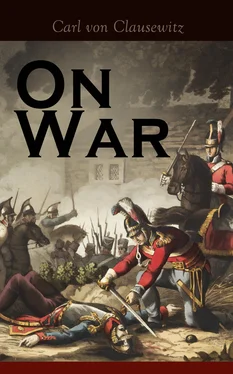Whether this state of equilibrium is in itself a good or desirable thing may be open to argument. I have discussed it at length in my “War and the World’s Life”; but I venture to suggest that to no one would a renewal of the era of warfare be a change for the better, as far as existing humanity is concerned. Meanwhile, however, with every year that elapses the forces at present in equilibrium are changing in magnitude—the pressure of populations which have to be fed is rising, and an explosion along the line of least resistance is, sooner or later, inevitable.
As I read the teaching of the recent Hague Conference, no responsible Government on the Continent is anxious to form in themselves that line of least resistance; they know only too well what War would mean; and we alone, absolutely unconscious of the trend of the dominant thought of Europe, are pulling down the dam which may at any moment let in on us the flood of invasion.
Now no responsible man in Europe, perhaps least of all in Germany, thanks us for this voluntary destruction of our defences, for all who are of any importance would very much rather end their days in peace than incur the burden of responsibility which War would entail. But they realise that the gradual dissemination of the principles taught by Clausewitz has created a condition of molecular tension in the minds of the Nations they govern analogous to the “critical temperature of water heated above boiling-point under pressure,” which may at any moment bring about an explosion which they will be powerless to control.
The case is identical with that of an ordinary steam boiler, delivering so and so many pounds of steam to its engines as long as the envelope can contain the pressure; but let a breach in its continuity arise—relieving the boiling water of all restraint—and in a moment the whole mass flashes into vapour, developing a power no work of man can oppose.
The ultimate consequences of defeat no man can foretell. The only way to avert them is to ensure victory; and, again following out the principles of Clausewitz, victory can only be ensured by the creation in peace of an organisation which will bring every available man, horse, and gun (or ship and gun, if the war be on the sea) in the shortest possible time, and with the utmost possible momentum, upon the decisive field of action—which in turn leads to the final doctrine formulated by Von der Goltz in excuse for the action of the late President Kruger in 1899:
“The Statesman who, knowing his instrument to be ready, and seeing War inevitable, hesitates to strike first is guilty of a crime against his country.”
It is because this sequence of cause and effect is absolutely unknown to our Members of Parliament, elected by popular representation, that all our efforts to ensure a lasting peace by securing efficiency with economy in our National Defences have been rendered nugatory.
This estimate of the influence of Clausewitz’s sentiments on contemporary thought in Continental Europe may appear exaggerated to those who have not familiarised themselves with M. Gustav de Bon’s exposition of the laws governing the formation and conduct of crowds I do not wish for one minute to be understood as asserting that Clausewitz has been conscientiously studied and understood in any Army, not even in the Prussian, but his work has been the ultimate foundation on which every drill regulation in Europe, except our own, has been reared. It is this ceaseless repetition of his fundamental ideas to which one-half of the male population of every Continental Nation has been subjected for two to three years of their lives, which has tuned their minds to vibrate in harmony with his precepts, and those who know and appreciate this fact at its true value have only to strike the necessary chords in order to evoke a response sufficient to overpower any other ethical conception which those who have not organised their forces beforehand can appeal to.
The recent set-back experienced by the Socialists in Germany is an illustration of my position. The Socialist leaders of that country are far behind the responsible Governors in their knowledge of the management of crowds. The latter had long before (in 1893, in fact) made their arrangements to prevent the spread of Socialistic propaganda beyond certain useful limits. As long as the Socialists only threatened capital they were not seriously interfered with, for the Government knew quite well that the undisputed sway of the employer was not for the ultimate good of the State. The standard of comfort must not be pitched too low if men are to be ready to die for their country. But the moment the Socialists began to interfere seriously with the discipline of the Army the word went round, and the Socialists lost heavily at the polls.
If this power of predetermined reaction to acquired ideas can be evoked successfully in a matter of internal interest only, in which the “obvious interest” of the vast majority of the population is so clearly on the side of the Socialist, it must be evident how enormously greater it will prove when set in motion against an external enemy, where the “obvious interest” of the people is, from the very nature of things, as manifestly on the side of the Government; and the Statesman who failed to take into account the force of the “resultant thought wave” of a crowd of some seven million men, all trained to respond to their ruler’s call, would be guilty of treachery as grave as one who failed to strike when he knew the Army to be ready for immediate action.
As already pointed out, it is to the spread of Clausewitz’s ideas that the present state of more or less immediate readiness for war of all European Armies is due, and since the organisation of these forces is uniform this “more or less” of readiness exists in precise proportion to the sense of duty which animates the several Armies. Where the spirit of duty and self-sacrifice is low the troops are unready and inefficient; where, as in Prussia, these qualities, by the training of a whole century, have become instinctive, troops really are ready to the last button, and might be poured down upon any one of her neighbours with such rapidity that the very first collision must suffice to ensure ultimate success—a success by no means certain if the enemy, whoever he may be, is allowed breathing-time in which to set his house in order.
An example will make this clearer. In 1887 Germany was on the very verge of War with France and Russia. At that moment her superior efficiency, the consequence of this inborn sense of duty—surely one of the highest qualities of humanity—was so great that it is more than probable that less than six weeks would have sufficed to bring the French to their knees. Indeed, after the first fortnight it would have been possible to begin transferring troops from the Rhine to the Niemen; and the same case may arise again. But if France and Russia had been allowed even ten days’ warning the German plan would have been completely defeated. France alone might then have claimed all the efforts that Germany could have put forth to defeat her.
Yet there are politicians in England so grossly ignorant of the German reading of the Napoleonic lessons that they expect that Nation to sacrifice the enormous advantage they have prepared by a whole century of self-sacrifice and practical patriotism by an appeal to a Court of Arbitration, and the further delays which must arise by going through the medieval formalities of recalling Ambassadors and exchanging ultimatums.
Most of our present-day politicians have made their money in business—a “form of human competition greatly resembling War,” to paraphrase Clausewitz. Did they, when in the throes of such competition, send formal notice to their rivals of their plans to get the better of them in commerce? Did Mr. Carnegie, the arch-priest of Peace at any price, when he built up the Steel Trust, notify his competitors when and how he proposed to strike the blows which successively made him master of millions? Surely the Directors of a Great Nation may consider the interests of their shareholders—i.e., the people they govern—as sufficiently serious not to be endangered by the deliberate sacrifice of the preponderant position of readiness which generations of self-devotion, patriotism and wise forethought have won for them?
Читать дальше












